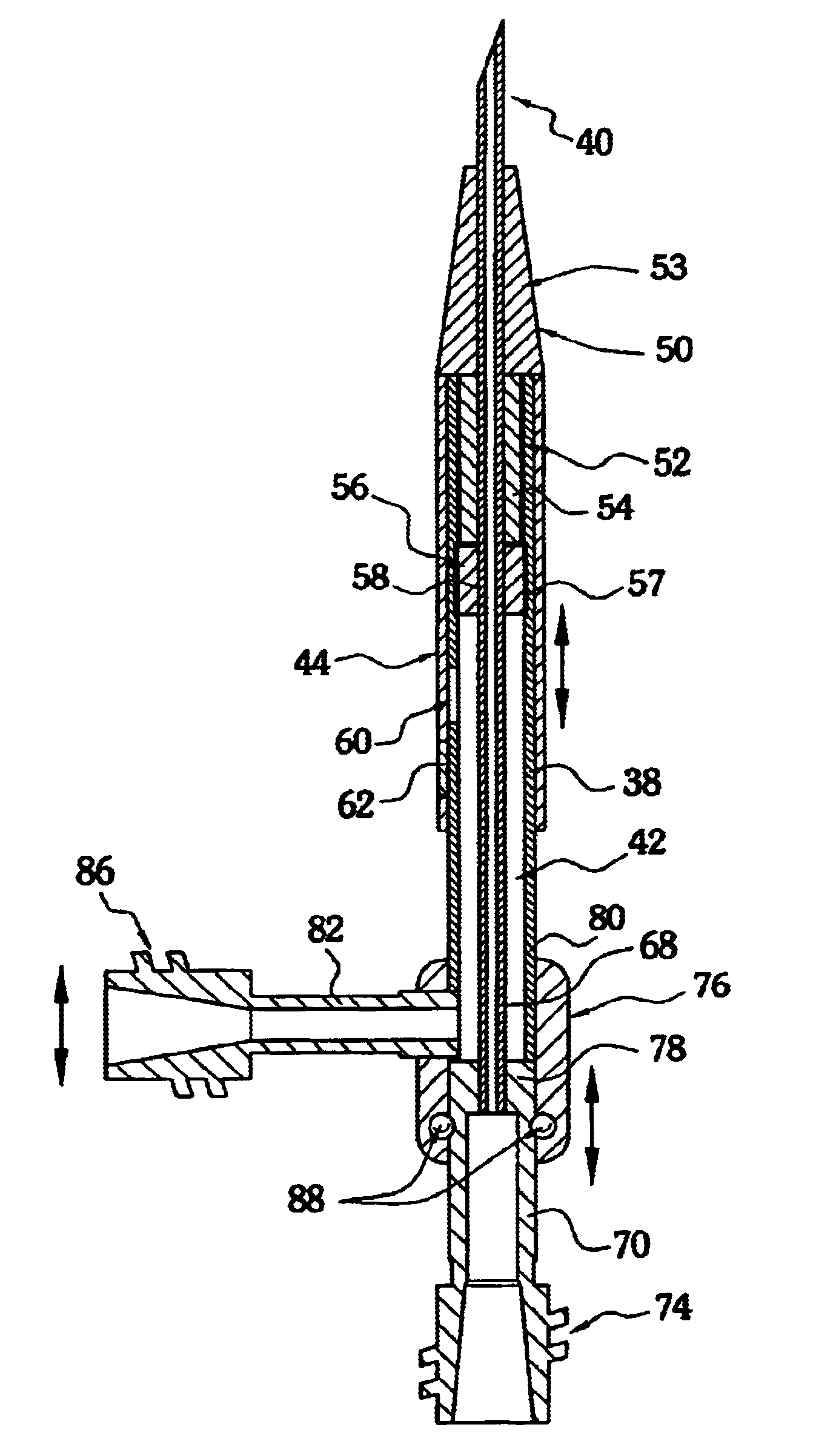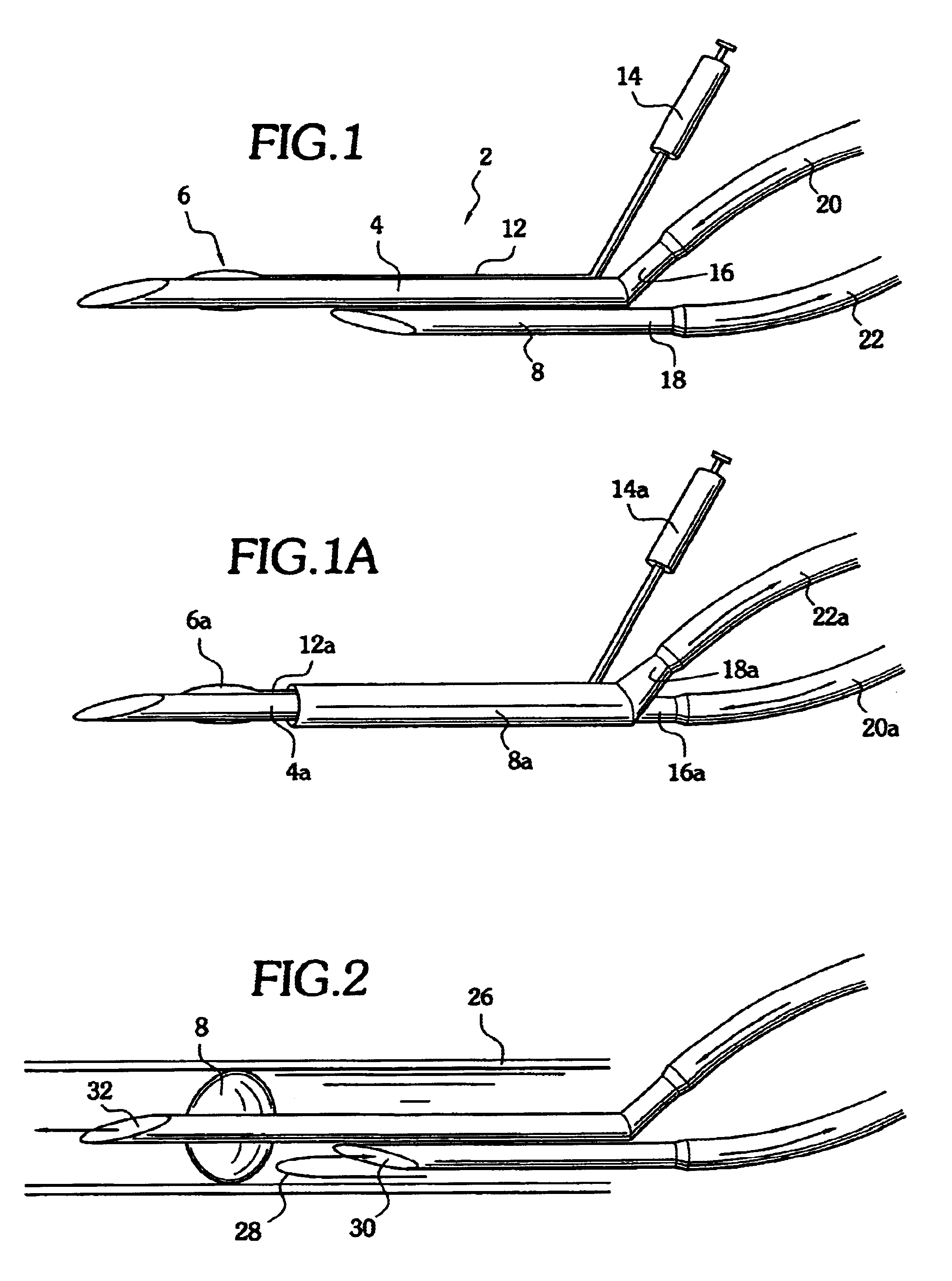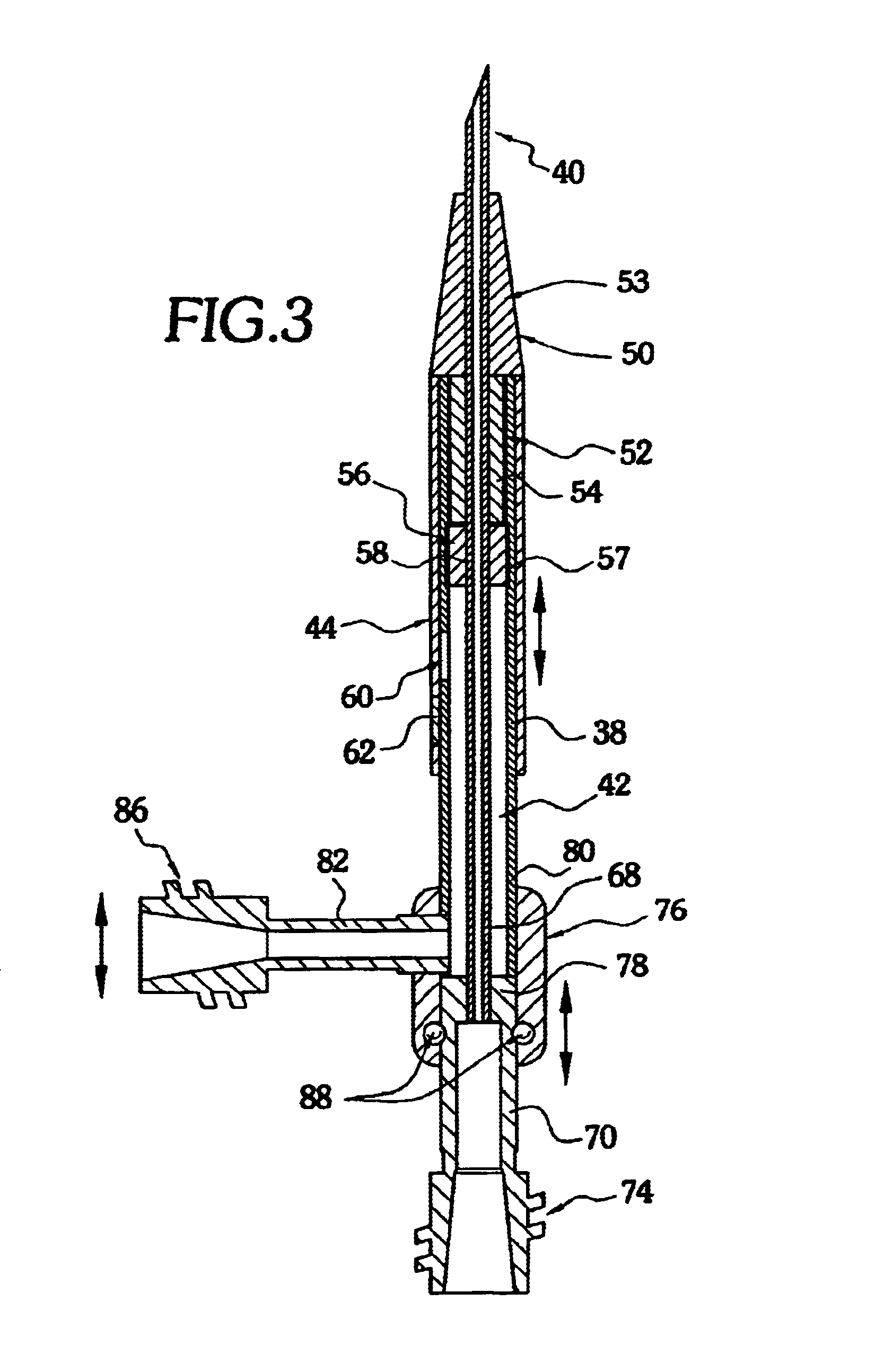Single access dialysis needle
a dialysis needle and single-access technology, applied in the field of extracorporeal hemodialysis, can solve the problems of reducing the life of patients, affecting the treatment of patients, so as to reduce the trauma and tissue damage of patients, prevent blood from returning, and reduce the effect of recirculation
- Summary
- Abstract
- Description
- Claims
- Application Information
AI Technical Summary
Benefits of technology
Problems solved by technology
Method used
Image
Examples
Embodiment Construction
[0020]The invention can perhaps be better understood from the drawings. In FIG. 1 a dialysis needle system 2 comprises a first cannula 4 with an annular balloon 6 and a second cannula 8. Balloon 6 is in fluid communication with an inflation lumen 12 and an inflator 14. Balloon 6 is deployed after insertion of the cannula and positioning within a dialysis fistula. The proximal end 16 of first cannula 4 and the proximal end 18 of second cannula 8 are separated or otherwise configured so that each of proximal ends 16 and 18 can be attached to hoses 20, 22 attached to a hemodialyzer (not shown). First cannula 4 and second cannula 8 are shown in FIG. 1 to be essentially parallel. It should be noted that it is within the scope of the invention that first cannula 4 and second cannula 8 can be coaxial to one another. For example, as shown in FIG. 1A, second cannula 8a circumferentially surrounds first cannula 4a. Balloon 6a is in fluid communication with an inflation lumen 12a and an inflat...
PUM
 Login to View More
Login to View More Abstract
Description
Claims
Application Information
 Login to View More
Login to View More - R&D
- Intellectual Property
- Life Sciences
- Materials
- Tech Scout
- Unparalleled Data Quality
- Higher Quality Content
- 60% Fewer Hallucinations
Browse by: Latest US Patents, China's latest patents, Technical Efficacy Thesaurus, Application Domain, Technology Topic, Popular Technical Reports.
© 2025 PatSnap. All rights reserved.Legal|Privacy policy|Modern Slavery Act Transparency Statement|Sitemap|About US| Contact US: help@patsnap.com



